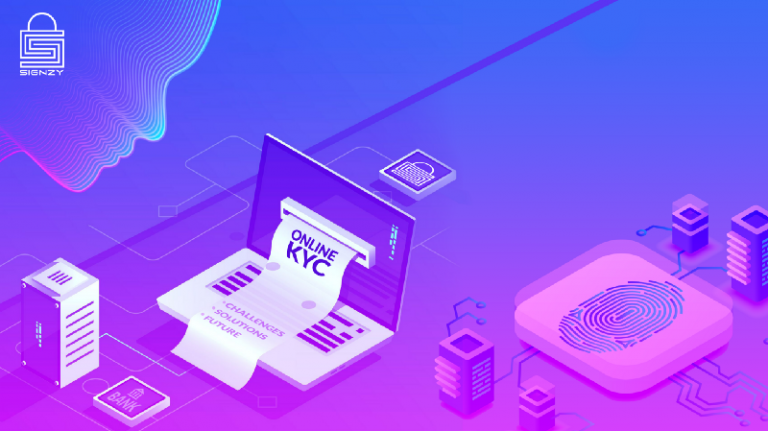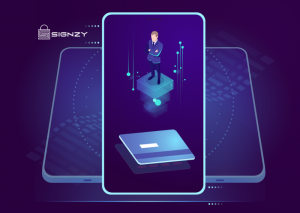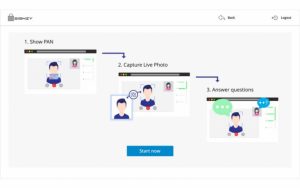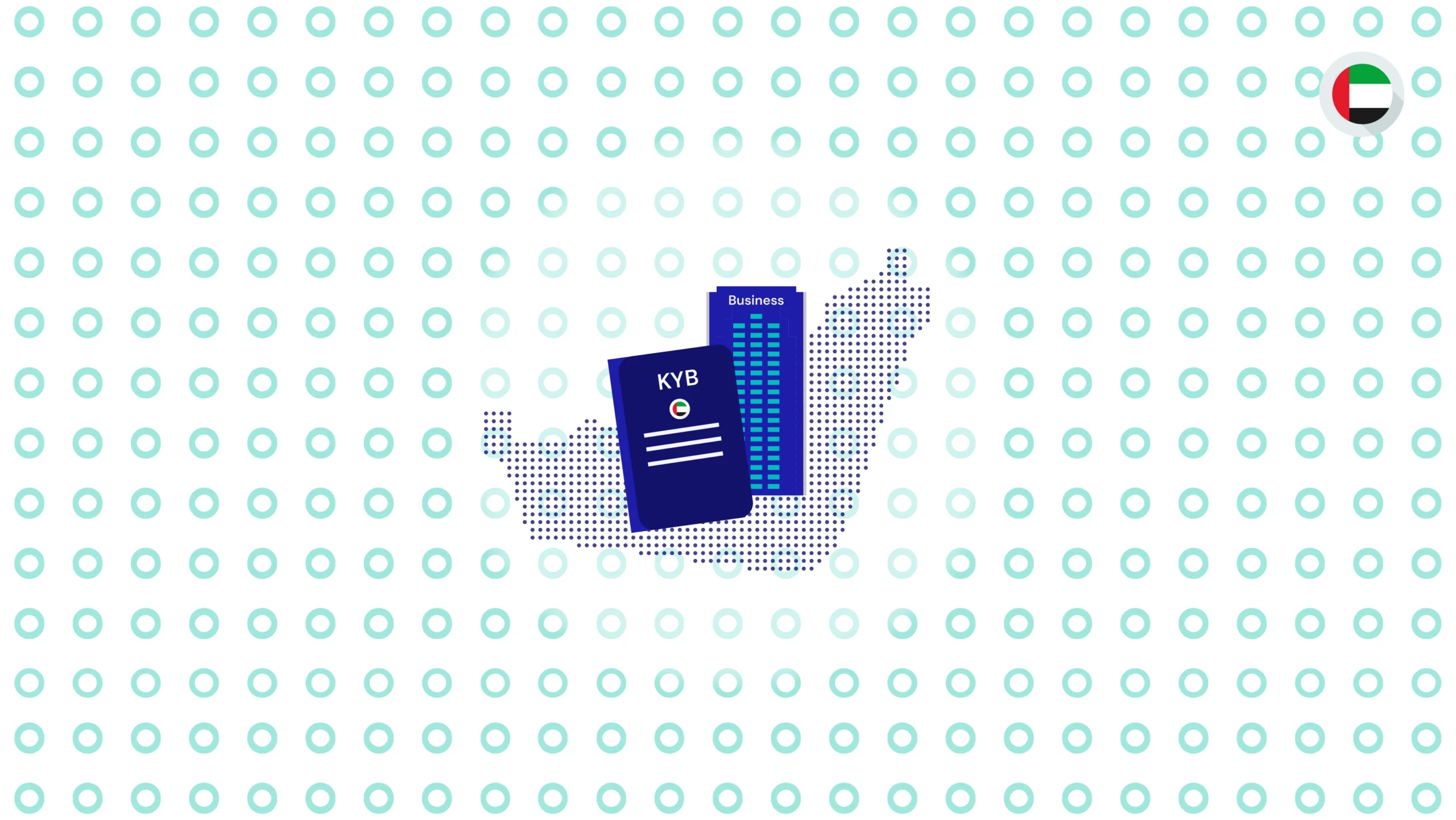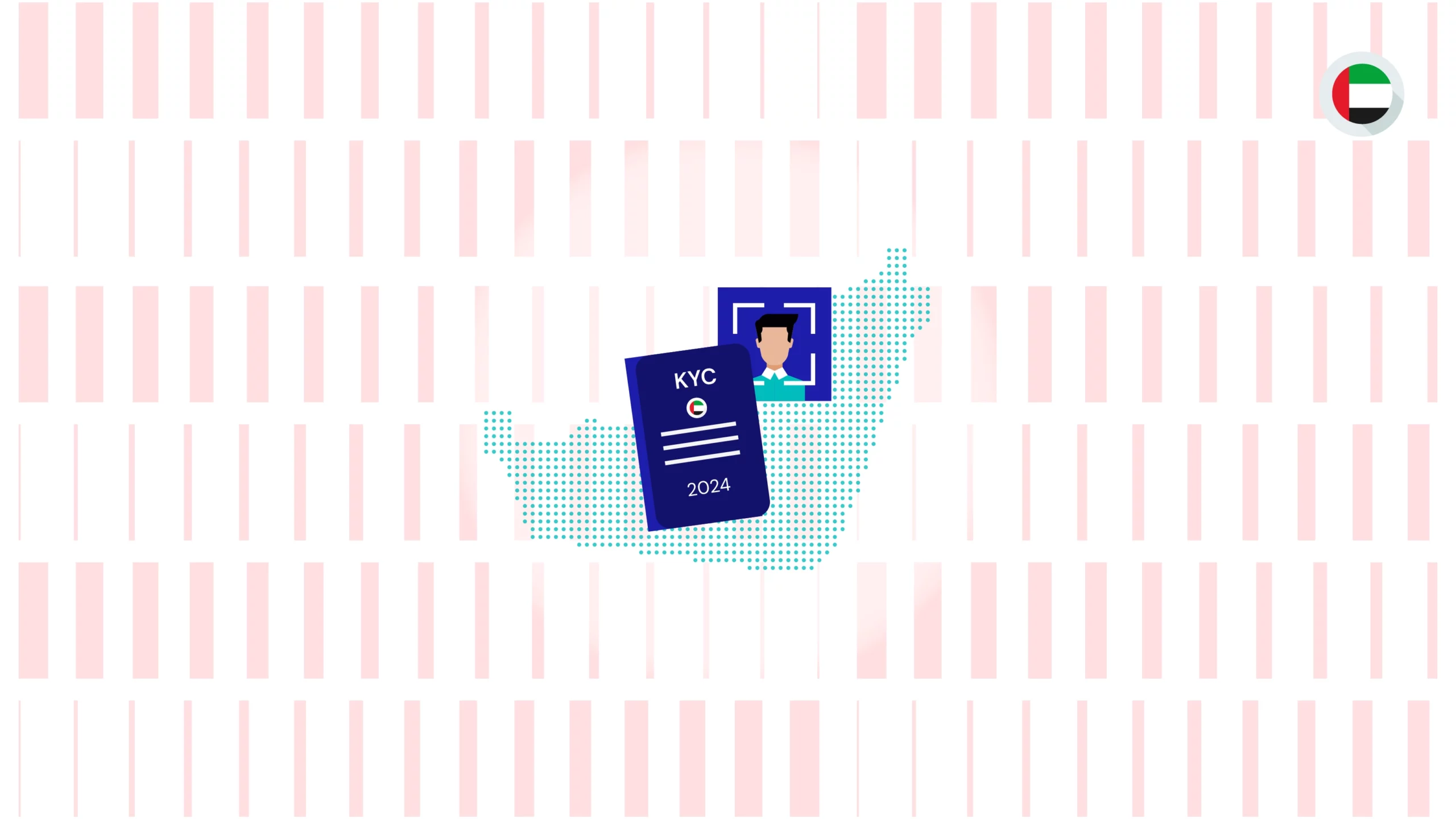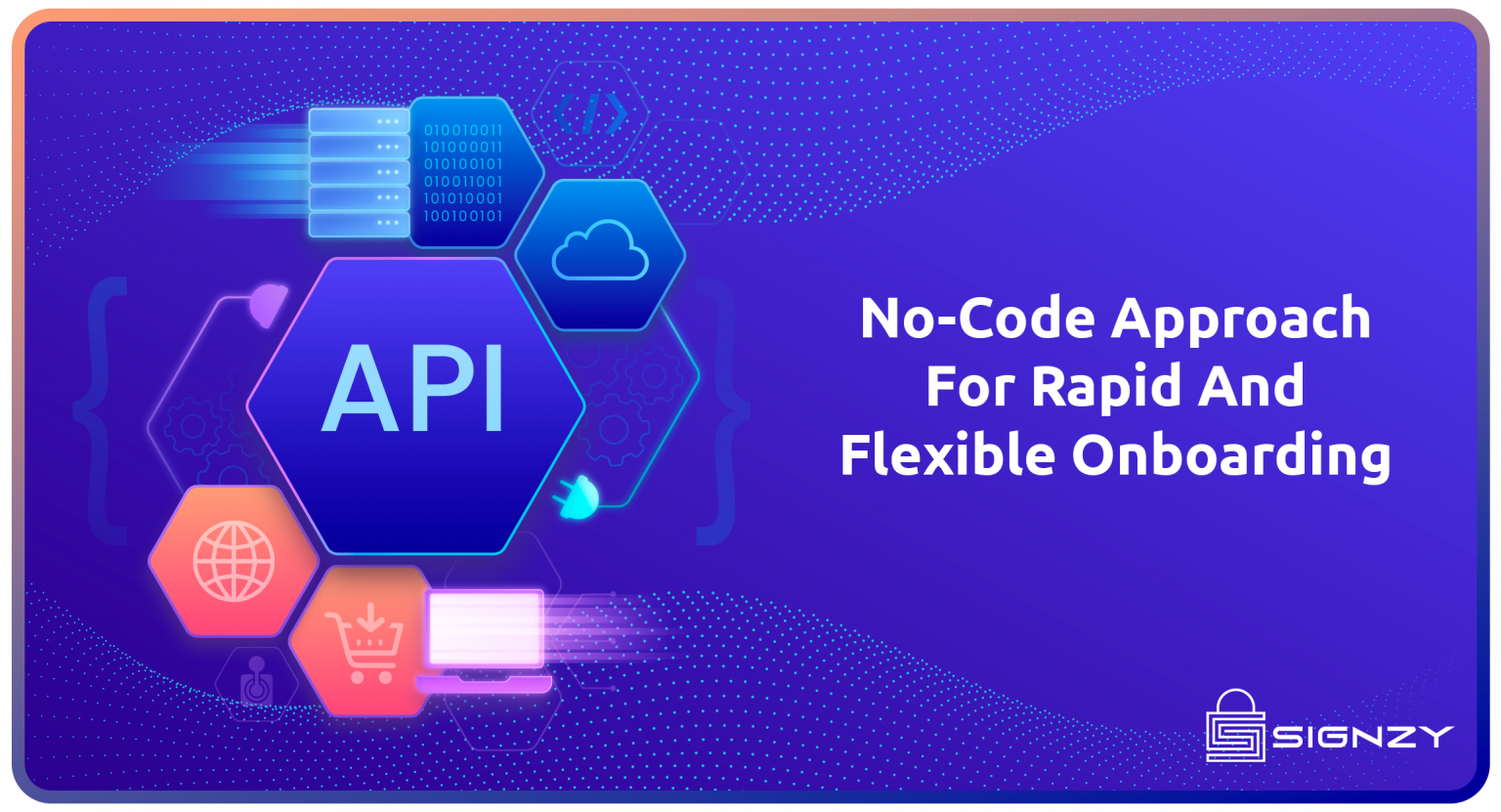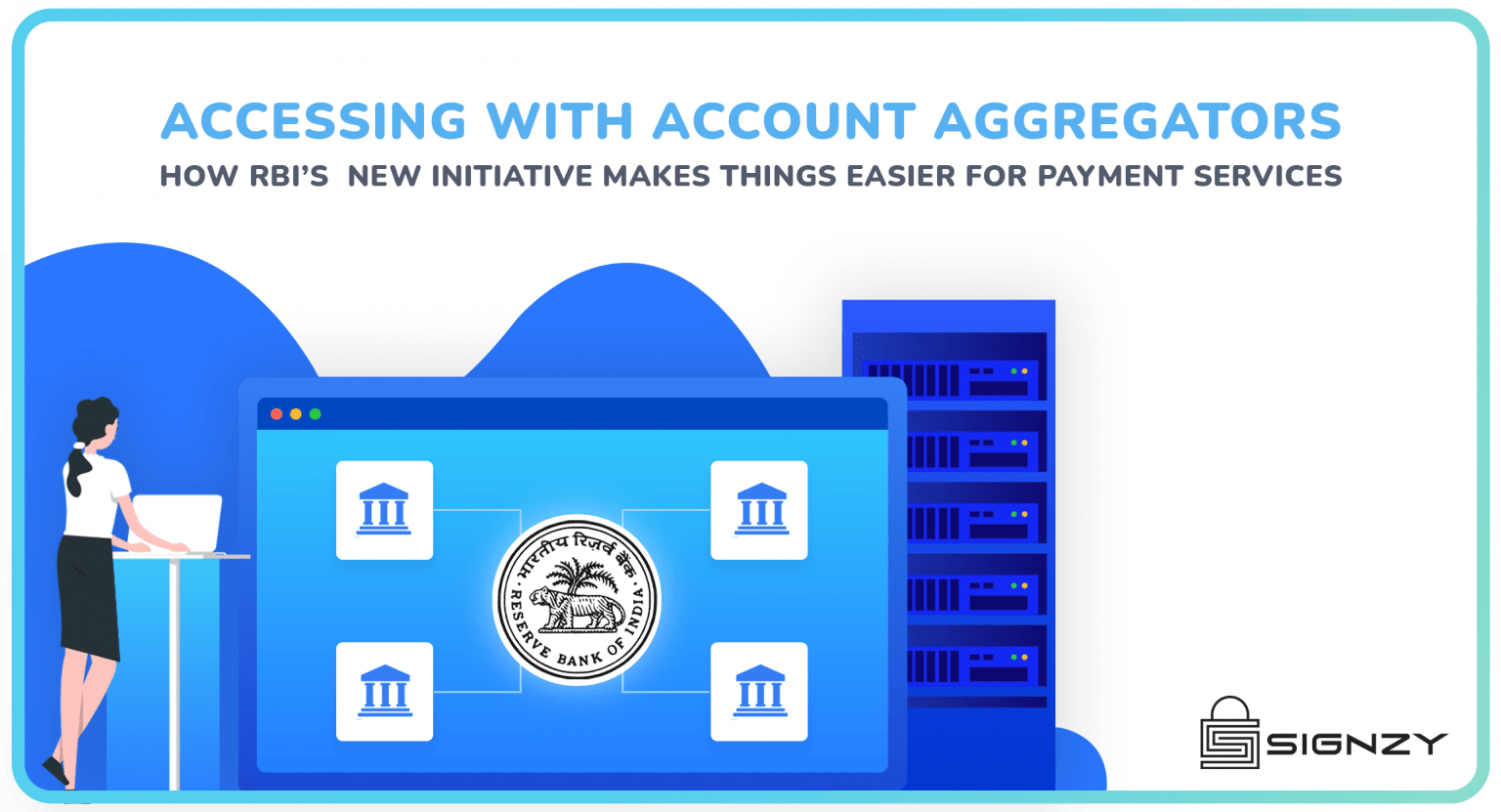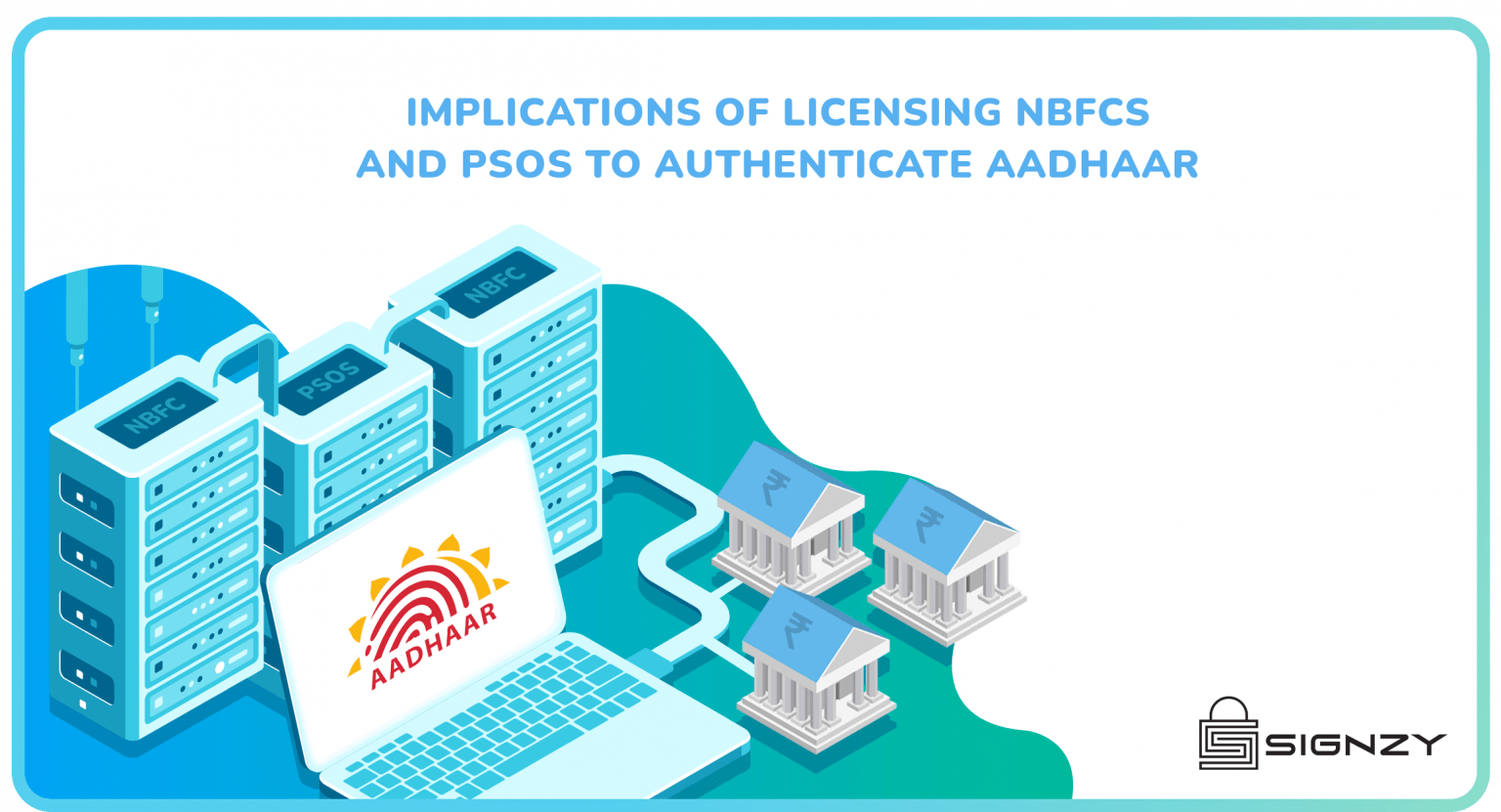KYC or Know Your Customer has been a crucial process in the banking sector for onboarding customers. However, traditional KYC involved several manual steps for the unique identification of the client. These steps were time-consuming, tedious and added to the expenses of the institutions. A report by X-Infotech states that banks across the world spend around $500 million yearly on KYC compliance. Financial Institutions (FIs) have also been additionally fined over $12 billion over violations of KYC and AML (Anti-Money Laundering) regulations since 2009. [1]
In a world where entities are ramping up online, digital authentication of one’s identity has become a necessity. With the pandemic taking the contactless process to a different level, institutions started to adapt themselves to a more efficient and cost-effective solution- Online KYC.
Online KYC has helped institutions verify the identities of their customers while at the same time providing them with a simple, secure, and compliant solution. It has provided customers with ease of moving through and completing the long process within minutes. In this blog, we discuss the challenges and benefits of the process.
Scrutinising Initial Challenges Of Digital Onboarding
Traditional onboarding involves several steps for the unique identification of the client. For a long time, in-person verification of the client’s identity was a must to ensure authenticity. Visiting the bank branch, face-to-face meetings and manual verification of documents was time taking. Along with this, it also left room for errors and a higher client dropout rate.
A lengthy onboarding process burdens the financial institutions. Online KYC helped make this process faster, secure and more efficient. However, there were many initial challenges that delayed the shift from offline to online. Some of these challenges included-
Lack of compatibility and compliance-
One of the major challenges of digital onboarding is the fact that users might have various devices with different internet bandwidth. In areas of weaker internet connection, onboarding can prove to be challenging. Different institutions can have their own set of regulations and specifications. This disparity and lack of standardization make the process confusing for customers with many accounts.
Inconsistency in recording data-
Outdated recorded data can prove to be a hurdle in the verification process. Performing accurate, efficient and verifications is central to maintaining a solid customer base and establishing a brand as a trusted service provider.
Privacy risks-
Verifying the information by a single FI and then using the same with others seems an efficient plan. But this also puts the information at higher cyber risk. Both global regulators and stakeholders expect that this will increase customer risk. Basic credentials and personal data on credit history involves many security risks. This might expose personal data to the very real threat of digital hacks.
Fraudulent-
Scamsters posing as officials have duped people of money. They usually do it by gaining remote access to the victim’s mobile phone screens through an app. They hack into the victim’s account by telling that their KYC needs validation.
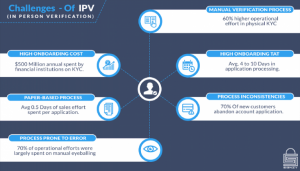
Curbing Hurdles And Adapting To A New Way Of Banking
A report on RPA by Capgemini states that onboarding takes 24–30 days on an average. The same report also states that 9 out of 10 customers were not satisfied with their bank’s KYC processes. [3] As a result of which, they had to switch banks. IPA (Intelligent Process Automation) solutions can help FIs optimize their operations. These will help in reducing the costs and improve the accuracy of data verification. Emphasis on online KYC regulations ensures businesses with an efficient experience.
- According to a study by CACI, by 2022 customer physical visits to their retail bank branches will drop by 36%. Mobile transactions will also see a rise of 121% in the same period as reported by x-infotech. The same report also estimates that 88% of all interactions will be mobile by 2022. [1]
- Financial institutions are now moving towards remote and online verification processes.
- Automated biometric verification and video conferencing tools provide a secure and efficient alternative to the traditional KYC method. A smooth, hassle-free client experience helps institutions grow their revenue.
- A report by Acuity Market Intelligence estimates that 1.9 billion bank customers will adopt biometrics for financial services by 2020. [1]
Combining AI + RPA to Transform Onboarding using IPA
Financial Institutions have now started to address this anomaly and have started to adapt themselves to the ever-evolving technology. This helps them make the process efficient for both themselves and their clients.
- IPA blends AI and RPA to create solutions that perform unstructured tasks efficiently. It shouldn’t be viewed as completely different from RPA (Robotic Process Automation) but rather an upgrade to it.
- IPA is capable of handling complex processes to provide a seamlessly integrated framework. It uses image recognition and Optical Character Recognition (OCR) to understand, recognise and process the data according to the required task.
- Introducing IPA (Intelligent Process Automation) can help cut down the probability of error and manual efforts of conducting repetitive steps.
Here is a list of benefits of IPA and how it is transforming the KYC process-
A smooth client onboarding solution
The faster process can allow financial institutions (FIs) to add value to their client services. The consistent and smooth customer experience can benefit them to transact or trade. eKYC reduces the manual efforts spent on collecting the client’s documents. Faster client onboarding proves to be an effective way of revenue generation.
Reduction in operational time and cost
An automated and standardised process reduces the inefficient steps in onboarding customers. Institutions can review and store the data. This reduces contact points and client drop-out rates. Capgemini reports that a centralised source could help the financial institutions save crucial back-office hours. It also helps and reduces costs by up to 50%.[3]
Increased operational accuracy
Manual entry of data can often lead to errors. This can amount to application rejection and loss of office hours and resources. eKYC registration online eliminates that risk. Accurate and secure storage of data helps combat the issue.
Better regulatory compliance and a holistic digital transformation
Financial institutions can harness better relationships with their clients. The details are up to date and transparent. This leads to better business partnerships and networks.
Quick ROI And Employee Satisfaction
Capgemini reports that the return on investment (ROI) on RPA implementations is as short as six to nine months [3]. Reduction in the manual processing of data helps in the reassignment of higher value tasks to the back-office staff. Allocation of new and improved objectives improves the work-life balance of employees.
How is Signzy providing a solution to these challenges?
Signzy’s AI-based solutions offer a simple, secure KYC collection process to financial institutions. We provide digital onboarding services to over 70+ financial institutions including 7 major banks in India. After implementing our solution, our clients have seen-
1. 75% reduction in operational costs,
2. 66% reduction in customer dropout
3. 3x increase in sales
Here are the overall benefits of our digital onboarding products-
Better compliance and compatibility-
Our services are compliant with the latest regulations. Through our smart AI-enabled onboarding solutions, we offer our clients to customize their workflow according to their needs. In addition, these solutions are compatible with most user devices. They have proven to be effective over various platforms, browsers and low-internet scenarios. This offers the users a seamless onboarding experience. Customers receive notifications about the required documents for the verification beforehand. Clients can schedule a time for verification through VideoKYC.
Improved BackOps, better efficiency-
Our Patented AI reduces 90% Backops effort. This makes the onboarding of investors effective. The details of the customer are extracted from the identification document uploaded by them using advanced extraction services. These details are then verified against forged data using Signzy’s proprietary technology.
Reduction of TAT-
The traditional method of KYC involves the submission of a lot of documents. Followed by processing and verification by several departments and their officers. This can be a time-consuming process. The automated process of VideoKYC saves a lot of time. Real-time verification of documents reduces the hassle of collecting photocopies.
Better background checks-
A unique set of APIs does comprehensive credit checks against potential frauds. Through advanced AI technology, we have been on the frontline of providing credible background checks. Some of which, for instance, include-
- Document recognition- Real-time PAN verification extracts the data from the displayed ID proof by the customer. At the same time, it verifies the data against digital forgery, frauds or risks.
- Video liveliness check- Video forensics detects pre-recorded videos and potential spoofs.
- Image and video forgery- Face on the ID is matched against the face in the video and a match (or confidence) percentage is shown.
Best-in-class data protection and privacy-
The data shared on our platform is end-to-end encrypted. Our platform prevents leakage of data and malicious activities by any third party. Our video conferencing tool allows recording and the safe storage of calls for call audits. Any breach of privacy can be understood during auditing.
Conclusion
Today, a lot of financial institutions are heading the automation way. Yet, there are still some exploring the scope of it. Ever-changing regulations and policies in the KYC process appear as a hurdle. This creates challenges for both financial institutions and their clients. A standardised process will help FIs with better client onboarding solutions. While such problems may continue in the future, IPA solutions hold the potential to combat such issues. Digital Onboarding is simple and secure and at the same time provides a seamless customer experience.
About Signzy
Signzy is a market-leading platform redefining the speed, accuracy, and experience of how financial institutions are onboarding customers and businesses – using the digital medium. The company’s award-winning no-code GO platform delivers seamless, end-to-end, and multi-channel onboarding journeys while offering customizable workflows. In addition, it gives these players access to an aggregated marketplace of 240+ bespoke APIs that can be easily added to any workflow with simple widgets.
Signzy is enabling ten million+ end customer and business onboarding every month at a success rate of 99% while reducing the speed to market from 6 months to 3-4 weeks. It works with over 240+ FIs globally, including the 4 largest banks in India, a Top 3 acquiring Bank in the US, and has a robust global partnership with Mastercard and Microsoft. The company’s product team is based out of Bengaluru and has a strong presence in Mumbai, New York, and Dubai.
Visit www.signzy.com for more information about us.
You can reach out to our team at reachout@signzy.com
Written By:

Signzy
Written by an insightful Signzian intent on learning and sharing knowledge.
